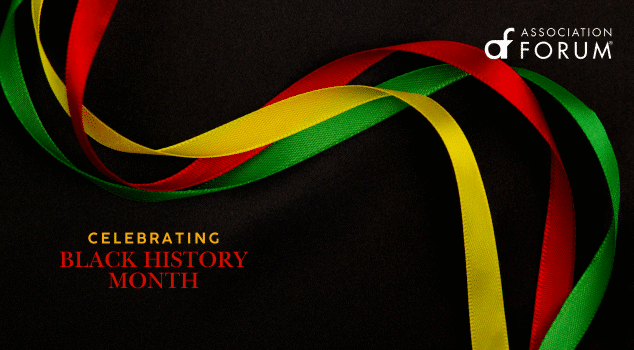Workforce to Hit 30% Gen Z by 2030: Ready or Not?

“They don’t respect authority.”
“They’re lazy.”
“They jump from job to job.”

Sarah Sladek, CEO of XYZ University
These are just a few of the labels often pinned on Gen Z or those born between 1997 and 2012. I was especially interested in exploring these perceptions during my recent interview with Sarah Sladek, CEO of XYZ University. Having hired and worked with Zoomers who defy those stereotypes—and as someone who’s a bit familiar with their tendency to push back on authority (I have a teenage daughter, but let’s not get into that)—I came to the conversation with my curiosity. I wanted to better understand Gen Z’s strengths and how association leaders can create workplaces where every generation—Boomers to Zoomers—has the chance to thrive.
Q: Can you give me some background on the Gen Z workforce?
Gen Z is a very broad topic and we could talk for hours. But Generation Z is the current generation straddling the teen years and twenties. These are peak developmental years when they are heading to college and beginning careers. And we are starting to see a lot of trends, especially since this generation was largely impacted by the pandemic. It is always interesting to look at the generation that’s coming-of-age during adolescence and then the years following adolescence because it is indicative of how they’re going to interact with their employers, with their membership organizations, how they’ll make decisions and what they value and prioritize.
Currently about 18 percent of the workforce is Generation Z and by 2030 it will be 30 percent. There are still a lot of Gen Zs in late high school and college and we are going to continue to see Gen Z’s infiltrating the workplace.
Q: How does Gen Z compare to Millennials and Gen X in terms of work styles and expectations?
Xers and Boomers, and the generations that came before were raised to respect authority. Millennials and Gen Zs were raised to question authority. Today, Gen Z’s influence approximately 75% of household purchasing decisions. And you add in social media, allowing them to have a platform to express their opinion and having direct access to leadership, those hierarchies have flattened in their minds. However Boomers and Xers were raised very, very differently.
This is the mark of the end of one era and the beginning of another. We are done with hierarchy and authoritarian processes and businesses at work. We are shifting towards more collaboration, flatter environments, more innovation, co-creation and collective problem solving.
Strengths and Attributes
Q: What are some of Gen Z’s most positive attributes in the workplace?
Gen Z is incredibly informed. They are probably one of the best-informed generations ever. There is research to prove their brains have developed differently, which I think is fascinating. Their brains absorb information at a faster rate. So, they tend to learn skills and information very, very quickly. And they create and consume more content than any other generation. Which is just a tremendous asset that a lot of organizations, associations included, aren’t really leveraging.
Q: How does their digital fluency impact their effectiveness at work?
Gen Zs create and consume a lot of content. They do not see the world as having silos or barriers. They were raised with social media—yes, there are things that weren’t great about that. But one of the positive things is they grew up having a direct line of communication to the President of the United States. President Obama was the first to be on Twitter and early on social media. And so, Gen Z has just grown up not seeing silos or hierarchies. They just see an open field and opportunities to build relationships with anyone.
Challenges and Pain Points
Q: What are some of the challenges employers face when managing Gen Z employees?
One of the challenges employers face is that Gen Z has largely been raised to compete and to compare themselves and their performance. People with Gen Zs in their lives know that they grew up with access to apps or dashboards, where they could check their grades at any time and constantly monitor their performance. One of their challenges employers hear as they’ve moved into the workplace is ” I don’t really know how I’m doing. I have no checks and balances.” I can’t measure my success or my performance, so I just kind of feel lost. Or I don’t feel motivated because I don’t have that measurement.’
This is fixable, but workplaces aren’t designed to have that instant measurement in place. Another issue is that Gen Zs can easily get bored. They feel like, well, I’ve already learned how to do that, now I want to do something else.
Q: Have you noticed generational differences that sometimes create friction in association workplaces?
Yes. This is really about different approaches. Older generations were raised with hierarchy. Gen Z and Millennials were raised in a flatter, collaborative era. So when Gen Zs push back with new ideas, some leaders dislike that. They’ll say, ‘No, this is the way we’ve always done it. Who are you, right out of college, to suggest otherwise?’ This creates tension, because the expectations and learned behaviors are different.
Q: Are there any misconceptions you’d like to clear up?
Oh gosh, yes. The top ones: that Gen Z is lazy, me-me-me, quick to call in sick, or entitled. Those stereotypes really miss the mark.
This generation has grown up under enormous pressure—academically, socially and financially. They’re not lazy. They’re stressed and navigating very different circumstances than older generations did.
Employer Practices and Management
Q: How can associations better manage, engage, and retain Gen Z employees?
Smart organizations are allowing flexible work hours and schedules. They’re being mindful of offering counseling programs, mental health support, and results-oriented work environments. Gen Z wants to know their managers personally. They value relationships, coffee chats, and open conversations with leaders. They don’t expect to wait weeks to hear from them. That connection really matters.
Q: What approaches to feedback, professional development, or recognition resonate most with them?
They’ve grown up with dashboards and constant feedback. So in the workplace, they want ongoing, real-time feedback. Recognition should be more immediate and tied to their progress. They also value opportunities to learn new things and move across different roles or projects—versus staying in one lane for years.
Trends and Future Outlook
Q: Are there broader trends you’re seeing in how Gen Z is reshaping the workplace?
Yes. Gen Z is accelerating the shift away from hierarchy and authoritarian leadership toward flatter, collaborative work environments. They bring an expectation that innovation, co-creation, and collective problem-solving should be part of the culture. They’re also raising the bar on diversity, equity, inclusion, and mental health support in organizations.
Q: How are they influencing recruitment, retention, and organizational culture in associations?
They expect transparency and authenticity. They’ll leave if they feel an employer doesn’t align with their values. That’s different from older generations, who were more likely to ‘stick it out.’ Associations that embrace Gen Z’s desire for purpose, flexibility, and development opportunities will be the ones who succeed in recruiting and keeping them.
Q: In your view, how will Gen Z impact the future of leadership pipelines in the association sector?
They will push leadership to be more collaborative and inclusive. Future pipelines will be shaped by their expectation that leaders are accessible, engaged, and focused on purpose, not just hierarchy. This is going to redefine leadership models across associations.
Other
Q: What’s one piece of advice you’d give to an association leader hiring their first Gen Z employee?
Build a relationship with them. Don’t just give them tasks. Get to know them personally, check in, and provide consistent feedback. They’ll thrive when they feel connected and supported.
Q: Anything else you’d like to share about this generation and their role in associations?
They’re not just the future—they’re the now. Associations that recognize their strengths, adapt to their expectations, and give them a seat at the table will be stronger. Those that resist change will struggle to engage and retain young talent.
Tags
Related Articles
BAE Chicagoland Kicks Off: Join the Movement!
Black Association Executives (BAE) is officially in Chicagoland, bringing a bold new community to Black...
The Weight We Carry: What Teams Wish Leaders Understood
Association professionals are feeling the strain of relentless change—burnout, shifting expectations, and emotional fatigue are...
Workforce to Hit 30% Gen Z by 2030: Ready or Not?
Gen Z isn’t lazy—they’re reshaping work with speed, collaboration, and purpose. Here’s how to engage...




